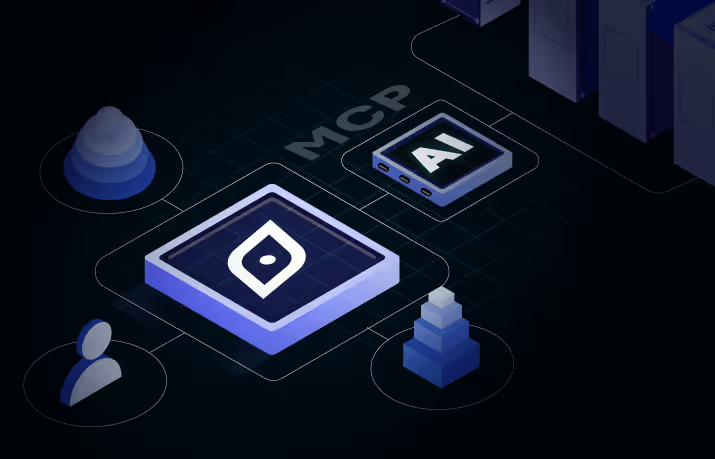7 Ways Talent Intelligence Powers Inclusive Hiring Practices
In today’s dynamic talent market, organizations are recognizing the pivotal role that inclusive hiring plays in fostering innovation, driving productivity, and creating a vibrant work culture.
At the heart of this transformative process lies a powerful ally: Talent Intelligence.
This approach to recruitment modernization goes beyond traditional methods, embracing a nuanced understanding of skills, potential, and, most importantly, diversity.
Understanding Talent Intelligence
Talent Intelligence is more than just a buzzword; it’s a strategic ally that combines data-driven intelligence and a forward-thinking approach to identify, attract, and retain diverse talent.
Unlike conventional hiring practices that may inadvertently perpetuate biases, Talent Intelligence leverages human-machine synergy to break down barriers and create an inclusive hiring ecosystem.
Here’s how talent intelligence revolutionises inclusive hiring in 2024:
Addressing Bias
One of the primary challenges in inclusive hiring is overcoming unconscious biases. Talent Intelligence leverages advanced algorithms to sift through vast amounts of data, ensuring that hiring decisions are based on merit rather than preconceived notions.
By relying on a combination of historical hiring data and predictive analytics, organizations can identify patterns, mitigate biases, and make informed decisions that contribute to a more inclusive workplace.
Personalizing the Hiring Process
Every candidate is unique, and Talent Intelligence recognizes this by personalizing the hiring process. By considering a candidate’s skills, experiences, and potential, rather than relying solely on traditional markers like resumes, organizations can tap into a broader talent pool.
This approach not only opens doors for individuals who may have unconventional career paths but also enriches the organization with a wealth of diverse perspectives.
Mitigating Employee Churn
Talent Intelligence delves into the root causes of attrition by analyzing patterns and conducting thorough exit interviews.
Every year, a company experiences ~20% turnover in its workforce as a result of employees moving to a new organization or starting their venture.
Understanding why employees leave allows organizations to make informed changes in recruitment practices, fostering a work environment that aligns with employee expectations.
By reducing employee churn, organizations can enhance workforce stability and avoid the financial strains associated with frequent turnover.
Predictive Analytics for Future Success
Talent Intelligence utilizes predictive analytics to forecast future talent needs. By analyzing past hiring trends, success stories, and potential challenges, organizations can proactively identify the skills and attributes that contribute to success within their specific context.
This forward-thinking approach not only ensures the right people are in the right roles but also enables organizations to strategically plan for a diverse and inclusive future.
Strategic Salary Benchmarking
In the pursuit of top-tier talent, offering competitive salaries is non-negotiable. Talent Intelligence facilitates informed salary benchmarking by analyzing market trends and comparing company salaries.
This data-driven approach enables organizations to structure their compensation plans effectively, fostering transparent conversations with employees about pay decisions.
The result is not just satisfied employees but also a fortified employer-employee relationship, leading to enhanced retention and organizational trust.
Cost-Effective Talent Acquisition
Recruitment efforts are inherently linked to the question of return on investment (ROI). Talent Intelligence provides the data-driven insights necessary for recruiters to optimize their strategies.
Key metrics like cost-per-hire, time-to-fill, time-to-hire, and quality of hire are illuminated through this lens.
Armed with this knowledge, organizations can identify and streamline the most cost-intensive stages of the recruitment lifecycle, ensuring that every hiring decision is a strategic investment with a high potential return.
Measuring and Reporting Diversity Metrics
Talent Intelligence provides the tools to measure and report on key diversity metrics. From the representation of different groups in the applicant pool to the success rates of diverse hires, organizations can use data to track progress and identify areas for improvement.
This transparency holds organizations accountable for their inclusive hiring goals and fosters a culture of continuous improvement.
The Future of Inclusive Hiring
As organizations navigate an increasingly complex talent market, the role of Talent Intelligence in shaping the future of inclusive hiring cannot be overstated.
Embracing a holistic approach that combines the power of technology with human empathy, Talent Intelligence is poised to redefine how organizations build their teams.
Draup’s talent intelligence platform promotes diversity, equity, inclusion & belonging (DEI&B) by removing bias, providing insights on high performers, and enabling informed hiring decisions. With features like Diversity Navigator, companies can match with the right talent based on skills, location, and project experience to build an inclusive organisation.










.svg)

















.svg)





.svg)





.svg)
